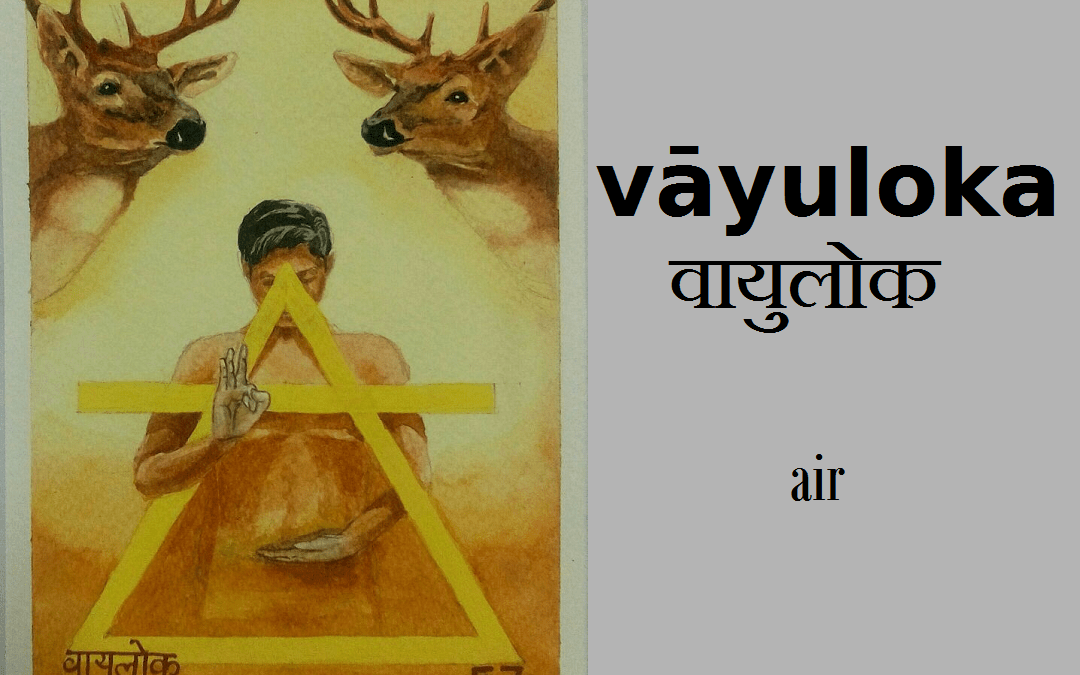Meaning air The invisible gaseous substance surrounding the earth.
Interpretation “VāyulokaAnger, Wrath, Passion”(gaseous state) is the cell where the player assumes and realises the formless, “lightness of being”. The Lord of this cell “Mārut” is known for his lightness and expansive existence. His son, Hanuman aka Māruti, is known for his supremacy over mass and weight. The player experiences this form of her being. This experience can be both a humbling, and a “power enhancing” experience.
Vāyu dhātu, is the air element in the pancha māhābhūta. On the game board, the proximity of the five gross elements, earth, water, ether, air and fire is very suggestive. From ether comes air, and from air comes fire. The water and earth elements follow last. The Air element represents the air, wind, cyclones and tornadoes. In our body, it comprises the breathing pattern and the gases moving inside our body.
Story Vayuloka is a realm in Hindu cosmology, where the gods and other beings who are associated with wind reside. It is also known as the world of wind.
The earliest references to Vayuloka are found in the Vedas, the oldest scriptures of Hinduism. In these texts, Vayuloka is described as a beautiful and serene realm. It is said to be filled with clear skies, fresh air, and lush vegetation. In the later Vedic texts, Vayuloka comes to be seen as a more complex and spiritual realm. It is said to be the home of the gods who are associated with wind, such as Vayu, the god of wind, and Hanuman, the monkey god. These gods are said to be responsible for the winds of the world, and they are said to be able to grant boons to those who are worthy.
Vayuloka is also seen as a place where humans can go to attain spiritual enlightenment. This can be done through the practice of meditation and contemplation on the element of air.
The concept of Vayuloka continues to be important in Hindu philosophy and practice. It is seen as a place of great spiritual power, and it is a goal for those who are seeking moksha.
On the game board In the context of Ludo snake and ladder, Vāyuloka can be seen as a symbol of freedom and liberation. The snakes on the Ludo board represent obstacles that we face in our lives, and some of these obstacles can only be overcome by freeing ourselves from attachments.
The game of Ludo snake and ladder is a reminder that we must free ourselves from attachments if we want to achieve moksha. We can do this by practicing non-attachment, or vairāgya, and by living a life of simplicity.

Recent Comments